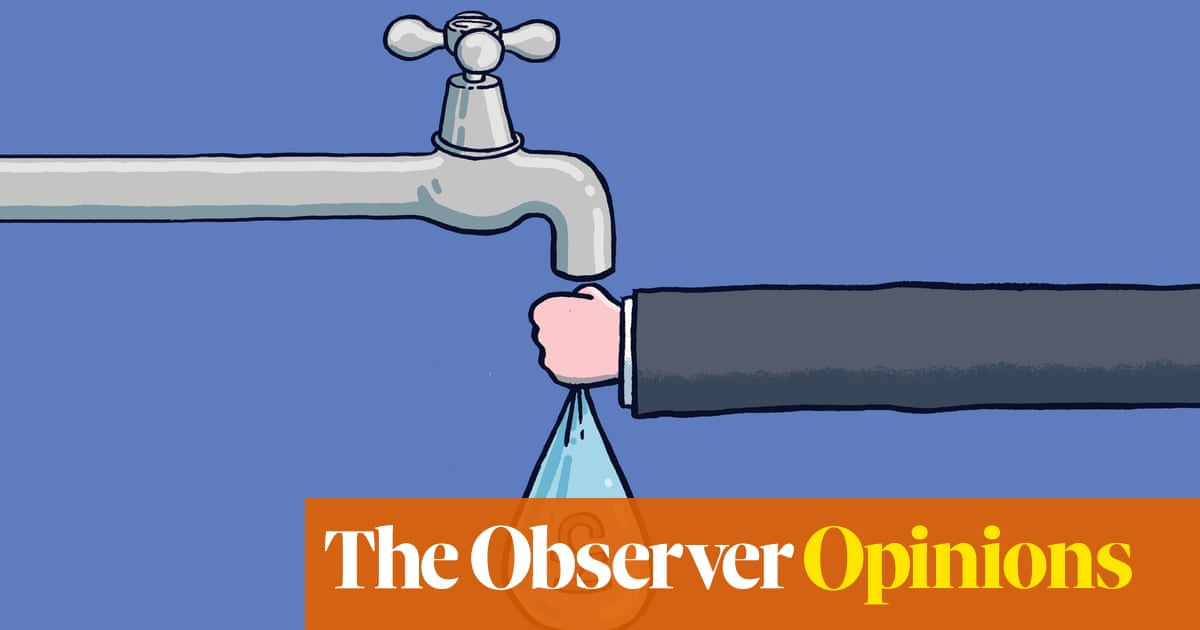
Where there’s muck there’s brass. But rarely was muck filthier or money more brass-necked than in the case of the brown effluent pouring into the Channel off Seaford, or the green algae spreading over Windermere. The English water industry can make all the excuses it likes, but those who find themselves swimming in sewage tend to notice – and wonder why those responsible deserve million-pound salaries. Last year nine water chiefs pocketed over £15m between them, an annual rise of 27%.
The dumping of sewage into watercourses is caused simply by storage tanks overflowing. This is currently attributed by the industry to hot weather causing unexpectedly fast run-off. This is supposed to happen only exceptionally rarely. Southern Water has reportedly made four such dumps into the Channel in a week. In total 373,000 cases of sewage discharge were reported in 2021, even before this year’s heatwave. Something has gone wrong.
The spread of rationing via hosepipe bans, and the explosion of sewage into rivers and the sea indicates an industry that has lurked too long in the private sector cupboard. Under the Victorians, water was the noble face of municipal socialism. Now it is the unacceptable face of capitalism. The success of privatised industry depends on the effectiveness with which the state regulates its natural monopolies. Under Whitehall’s Ofwat, water regulation has failed. Its most radical suggestion to meet the current crisis appears to be for people to turn off their taps while cleaning their teeth.
Since privatisation in 1989, an estimated £72bn has been allowed to leak from the industry into dividends, money that should clearly have gone into investment, stemming leaks and building overflow tanks. As it is, roughly a quarter of England’s fresh water never reaches the consumer but escapes from unrepaired pipes. Meanwhile contamination means the UK’s swimming sites are so filthy they ranked last in Europe for water quality in 2020. Even the government’s own Environment Agency has called for water company directors to be imprisoned for the appalling decline in performance, after a rise to 62 of what it classed as “serious incidents” of pollution last year. Campaigners are also taking Ofwat to court for regulatory failure. The industry, in every sense, stinks.
The talk now is of renationalisation, though the sight of the water companies walking away with yet more money in compensation would be hard to stomach. The real trouble lies less with privatisation as such than with its regulators. As with another crisis, that of the private care home sector, lax oversight has been aggravated by the slither of these industries into private equity or the murky world of offshore finance.
Here public utility falls by the wayside. Short-term profit is what matters, dividends are all and scandalous salaries generate a revolving door between companies, regulators and Whitehall. The result is that blatant polluters such as the poultry industry are allowed by planners to drain effluent into the River Wye and make it an open sewer. Our water utilities vent our own waste into the sea. And meanwhile a proposal for a national network for transferring water from the plentiful west to the parched east lies dormant. Its cost of £10bn is about a tenth that of Boris Johnson’s vanity project, HS2. A train was considered a greater priority.
Simon Jenkins is a Guardian columnist












